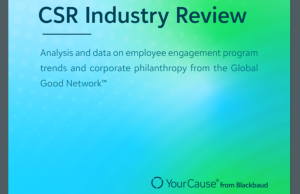A new guide provides a jumping-off point for conversations about racial equality within nonprofit technology operations. NTEN Equity Guide for Nonprofit Technology, issued by Portland, Ore.-based NTEN, addresses inequity concerns in technology staffing, processes and implementation issues.
The guide seeks to help level the playing field among all stakeholders in the nonprofit field, whether funders and grantees, management and staff, nonprofits and their constituents, or vendors and nonprofits, regarding technology use and accessibility.
Inequities can arise from assumptions and requirements regarding stakeholders’ familiarity with technology, according to the report’s authors. These range from listing familiarity with programs such as Microsoft Office as a job requirement or assuming access to mobile devices with unlimited data capacity. Even when an organization is willing to provide training, materials offered should be accessible to those with auditory, visual, physical, or other disabilities.
The guide also offers suggestions regarding drawing from a larger, more diverse talent pool, especially among community partners and other local organizations. An organization’s embrace of technology is strengthened when there is a diversity of experiences among those who implement, support or make technology decisions.
Equipment should always be provided, as opposed to requiring workers to supply their own, even if an organization has traditionally offered stipends for equipment use or modification. Standard equipment should be allotted by organization need, as opposed to hierarchy – the best equipment is not necessarily in the most appropriate hands if it always is allocated to top management. The same holds for training: even staffers who do not have a background in technology might prove to be adept, if given appropriate opportunity to demonstrate facility.
Data and technology concerns go beyond organization staff and volunteers. Technology is increasingly used for data collection purposes, and often anyone who interacts with an organization – a donor, a volunteer – is subject to data collection.
The guide urges transparency-focused practices when collecting and retaining data, as well as overall sensitivity. As the report states, “Use trauma-informed practices when collecting this information to minimize additional harm to constituents.” According to the guide, even collecting stories can result in trauma to both the individual telling the story and the person collecting it. And be judicious when sharing data – or, in the guide’s words, “Push back when funders ask for data that might limit participation, put participants in danger, or make participants uncomfortable.”
A full copy of the ethical guide to technology within nonprofits is available here: https://www.nten.org/wp-content/uploads/2020/09/NTEN-Equity-Guide-for-Nonprofit-Technology_September_2020.pdf











